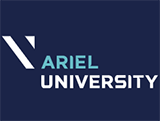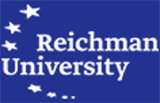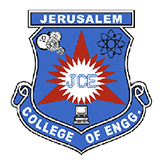About Ben-Gurion University
Overview
Ben-Gurion University of the Negev (BGU) is a major research university in the Negev region of southern Israel. Founded in 1969, the university is located in Beersheba, Israel, and is named after David Ben-Gurion, Israel's first prime minister, in honor of his contributions to Israel. Ben-Gurion University currently has about 20,000 students, including 1,300 doctoral students and more than 5,000 graduate students, and more than 100,000 graduates1. The university is known for its vibrant campus life and academic excellence, and has long been ranked as the first choice for Israeli undergraduates.
Founded
Ben-Gurion University was founded in 1969 and was originally established to promote economic development and social progress in the Negev region of southern Israel. In 1973, after the death of David Ben-Gurion, Israel's first prime minister, the school was renamed to its current name to commemorate his contributions.
School Strength
Ben-Gurion University is a research university with strong scientific research capabilities and rich academic resources. The university is a world leader in many disciplines, especially in the fields of new energy, dryland agriculture, water resources, etc. According to the 2021 QS World University Rankings, Ben-Gurion University ranks 4461. The university also maintains a close cooperative relationship with the industry, and the non-governmental funding it receives ranks first among Israeli universities.
Nature of the institution
Ben-Gurion University is a public university affiliated to the Israeli Ministry of Education. The university is committed to contributing to the socio-economic development of Israel and the world through high-quality education and cutting-edge scientific research.
Educational philosophy
Ben-Gurion University adheres to the educational philosophy of "letting flowers bloom in the desert" and emphasizes academic freedom and innovative spirit. The university is committed to cultivating students' independent thinking and scientific research capabilities, while paying attention to students' humanistic qualities and social responsibility. Ben-Gurion University also actively promotes interdisciplinary research and international cooperation to contribute to solving global challenges.
Key laboratories and disciplines
Ben-Gurion University has several key laboratories and research centers covering a wide range of research fields. For example, the university has conducted a large number of cutting-edge research in the following fields:
New energy: research on the development and utilization of renewable energy such as solar energy and wind energy.
Dryland agriculture: research on dryland ecology, dryland agriculture and bioinformatics, irrigation and plant growth environment, etc.
Water resources: research on seawater desalination, sewage treatment, environmental microbiology and water quality, etc.
Robotics: The ABC Robotics Center has achieved a multidisciplinary integration of agriculture, biology and cognitive robotics.
Nanotechnology: The Ilse Katz Institute of Nanotechnology has conducted a lot of research in nanomaterials and nanotechnology.
Biotechnology: The National Institute of Biotechnology is an example of a multidisciplinary research center and has produced many cutting-edge technologies.
Faculty
Ben-Gurion University has several colleges and institutes, including:
Engineering Science Department: covers disciplines such as electronic engineering, mechanical engineering, and computer science.
Health Science Department: covers disciplines such as medicine, public health, and nursing.
Natural Science Department: covers disciplines such as physics, chemistry, biology, and environmental science.
Department of Humanities and Social Sciences: covers literature, history, philosophy, sociology, psychology and other disciplines.
School of Management: covers business management, finance, accounting and other disciplines.
Kreitman Graduate School: provides graduate and doctoral education.
Jacob Blaustein Institute for Desert Research: a global leader in studying desertification and sustainable development in arid areas.
Rankings
Ben-Gurion University excels in many disciplines around the world. According to the 2021 QS World University Rankings, Ben-Gurion University ranks 446th. In addition, Ben-Gurion University has always maintained a top ranking in Israel.
Costs
Ben-Gurion University tuition varies depending on the major and program. Generally speaking, the tuition for undergraduate programs is about $10,000 to $15,000, and the tuition for graduate programs is between $12,000 and $20,000. The school also offers a variety of scholarships and grants to help outstanding students reduce their financial burden.
Campus
The main campus of Ben-Gurion University is located in Beersheba, Israel, with three campuses: Beer-Sheva, Sede Boqer and Eilat. The campus is equipped with modern teaching buildings, laboratories, libraries, sports facilities and student dormitories, providing students with a good learning and living environment. The university also pays attention to campus culture construction, regularly holds various academic lectures, seminars and cultural exchange activities, creating a vibrant academic atmosphere.
Unique course areas
Ben-Gurion University offers several unique course areas, including:
Master's degree in Desert Studies: research directions include dry valley ecology, dry valley agriculture and bioinformatics, solar energy and environmental physics, environmental research, irrigation and plant growth environment, environment and aquatic microorganisms, etc.
Master's degree in Hydrology and Water Quality: research directions include water resources, seawater desalination and water treatment, environmental microbiology and water quality, etc.
Summer courses: such as Soil-Plant-Climate Linkages in Arid Areas: Agricultural Management and Environment, aim to cultivate students' cutting-edge knowledge, let them understand the latest developments in agricultural technology, and improve food and water use.
International Summer Course on Global Health: Explores health issues in the context of globalization, covering multiple disciplines such as medicine, epidemiology, sociology, economics, politics, and ethnology.
International Cooperation
Ben-Gurion University attaches great importance to international cooperation and has established close cooperative relations with many internationally renowned universities and research institutions. For example, the university has signed student exchange, professor exchange, joint scientific research and joint training projects with many universities in the United States, Europe, Asia and other countries. In July 2020, Ben-Gurion University joined the Israel Gene Editing Technology Alliance, further strengthening its research strength in the field of biotechnology.
Conclusion
Ben-Gurion University has become a benchmark for the academic community in Israel and even the world with its excellent education quality and scientific research strength. The university not only plays a core role in Israel's education and scientific research system, but also cultivates a large number of outstanding academic and professional talents for the world. In the future, Ben-Gurion University will continue to uphold its educational philosophy of "letting flowers bloom in the desert", promote academic innovation and social progress, and make greater contributions to the development of human society.
-

Ariel University
-

Reichman University
-

Open University of Israel
-

Weizmann Institute of Science
-

Hebrew University of Jerusalem
-

Ben-Gurion University of the Negev
-

Bar-Ilan University
-

Jerusalem Academy of Music and Dance
-

Hadassah Academic College, Jerusalem
-

Jerusalem College of Engineering
-

Mesoamerican University
-

Istmo University
-

Mariano Galvez University of Guatemala
-

Regional University of Guatemala
-

Galileo University
-

Francisco Marroquín University
-

Rafael Landívar University
-

University of the Valley of Guatemala
-

University of San Carlos of Guatemala
-

Technological Institute of Tlaxcala Plateau
-

Golfo University
-

Technological University of South Sonora
-

Technological University of Huejotzingo
-

Tizimín Institute of Technology
-

Chilpancingo Institute of Technology
